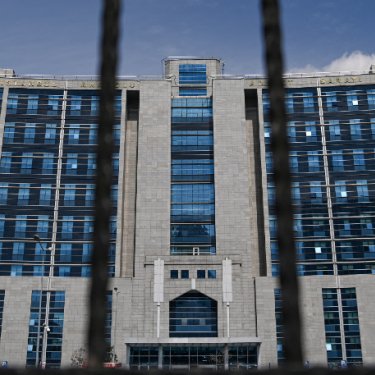Journalists threatened with imprisonment under Turkey’s terrorism law

At least ten journalists, including the Turkey representative of Reporters Without Borders (RSF), are due to appear in court during the next few weeks on charges under Turkey’s terrorism law, known as the TMK, which has been used for the past 20 years to intimidate and silence reporters and media that don’t toe the official line on the Kurdish issue.
The first victim will be Melis Alphan, a journalist specialising in covering conjugal violence, who will face a possible sentence of seven years and six months in prison for a single photo when she appears before an Istanbul court on 6 April.
A former columnist for the daily Hürriyet, she is charged under article 7 of the TMK with “propaganda for a terrorist organization” for publishing a photo of Newroz (Kurdish New Year) celebrations in the southeastern city of Diyarbakir in March 2015 in which the flags of the armed separatist Kurdistan Workers’ Party (PKK) could be seen. The Turkish government regards the PKK as a terrorist group.
Alphan is one of the many journalists to be prosecuted under the TMK since it took effect in 1991. Under this law, journalists can end up in prison for writing an article, sharing a photo or posting a tweet that does no more than allude to the highly sensitive Kurdish issue, without ever having condoned the use of Kurdish separatist violence.
RSF’s Turkey representative, Erol Önderoglu, is another of its victims. Along with Sebnem Korur Fincanci, a physician, and Ahmet Nesin, a journalist living in self-imposed exile, he has been charged for the past five years with “propaganda for a terrorist organization,” “praising a crime or criminal” and “inciting a crime.” All three are facing a possible sentence of 14 years and six months in prison in a trial before an Istanbul court that is due to start on 6 May.
Their crime was to have participated in a solidarity campaign in support of the beleaguered pro-Kurdish daily Özgür Gündem. They were acquitted on these charges in July 2019 but their acquittal was quashed last October. More than 20 journalists, writers and intellectuals who participated in this solidarity campaign have been convicted in the past four years. Most were given heavy fines. Some spent several months in prison. This was the case with Murat Çelikkan and Ayşe Düzkan, two journalists convicted of “PKK propaganda.”
Five other journalists are currently facing possible jail terms under the TMK. One is Sibel Hürtaş, the Ankara correspondent of Arti TV, a critical TV channel, who is being prosecuted because she invited the pro-Kurdish parliamentarian Osman Baydemir on to her show and he used it to criticize Turkey’s military operations against the Afrin enclave in northern Syria.
The photo-journalist Abdurrahman Gök will appear on court in Diyarbakir on 3 June on charges of belonging to the PKK and “propagandising for the PKK” in his articles and tweets.
The other three journalists, Canan Coşkun, Ali Açar and Cansever Uğur, will appear in court in Istanbul on 8 June, when they will face up to three years in prison under article 6 of the TMK on a charge of “revealing or publishing the identity of state representatives involved in combatting terrorism and/or identifying them as targets.”
The charge is due to the fact that in 2016 they published articles identifying the riot police officer suspected of firing the teargas grenade that killed a 16-year-old demonstrator, Berkin Elvan, during the anti-government protests in Istanbul’s Gezi Park in the spring of 2013. Elvan had become the symbol of the government’s ruthless crackdown and authoritarian excesses.
The death toll from the conflict between the PKK and the Turkish authorities since 1984 is put at around 40,000.
Turkey is ranked 154th out of 180 countries in RSF's 2020 World Press Freedom Index.


